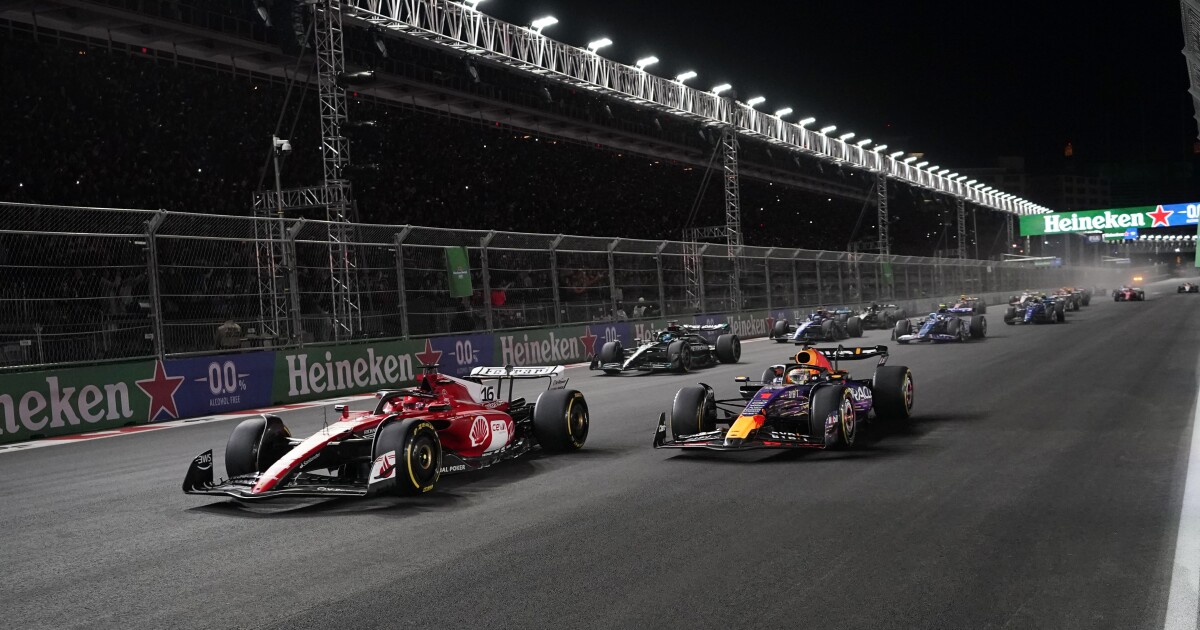Formula One, the pinnacle of motorsport, is set to make history in Las Vegas with its inaugural Grand Prix this weekend. The event, which has been highly anticipated in the sporting world, promises to see race cars roaring down the iconic Las Vegas Strip at speeds of up to 200 mph, marking the first time in the city’s history that such a spectacle has taken place.
However, not everyone in the vibrant desert city is thrilled about Formula One’s arrival. Despite the considerable investment of over half a billion dollars into this three-day extravaganza, complete with star-studded parties, celebrity chefs, and musical performances by the likes of J Balvin, Journey, John Legend, Keith Urban, and Steve Aoki, many locals seem less than excited.
Las Vegas: From Entertainment Mecca to Sports Hub
In recent years, Las Vegas has been on a mission to transform itself from an entertainment mecca into a sports hub. In the past five years, the city has successfully attracted an NHL team, a WNBA team, an NFL team, and is now eyeing the possibility of landing an MLB team. The new Sphere entertainment venue is set to host boxing and MMA fights, and next February, the city will host the Super Bowl.
Renee Wilm, CEO of the Las Vegas Grand Prix, is optimistic about the event’s potential. She stated, “(The Las Vegas Grand Prix) is set to make history as one of the largest sporting events in Las Vegas, creating unparalleled economic benefits to Southern Nevada while showcasing this incredible destination to the world. We are redefining the racing experience with the world-renowned hospitality and entertainment that only Las Vegas can offer.”
Despite the city’s ambitions, many local residents have expressed their concerns. They’ve taken to social media and local news outlets to voice complaints about steep ticket prices, event-related traffic gridlock, barriers obstructing public views of the Strip, and a general perception that the event caters more to high rollers than to the average fan.
A Mixed Bag for Local Businesses and Unions
The Las Vegas Grand Prix has brought both opportunities and challenges to the local business community. Some small businesses located along the 3.8-mile racetrack circuit have experienced increased business due to their prime location. Ellis Island Hotel, a small casino along the track, is one such example, benefiting from its proximity to the event.
Hotel labor unions in the city have also seen gains, with all three major hotel-worker labor unions reaching agreements with MGM, Wynn, and Caesars just a week before the F1 race, avoiding a workers’ strike during the festivities.
The Road to the Grand Prix: Traffic and Controversies
The road to the Las Vegas Grand Prix has been a bumpy one for many residents. Construction of the racetrack, which began in June, has led to street closures and traffic disruptions, causing significant delays for commuters and residents alike. Some have reported their daily commutes turning into hour-long slogs due to the construction.
Uber driver Rodney Hicks expressed frustration, stating, “They’re going to get the money (from the race) because they’re doing it, but the time that we spend letting you guys do this is taking away from our pockets.”
Additionally, the temporary grandstands erected for F1 ticket holders have obstructed views of iconic Strip attractions, such as the Bellagio’s dancing fountains. Pedestrian bridges were adorned with screens and barriers, leading to complaints from both tourists and residents who felt their views were intentionally blocked.
Formula One officials and Las Vegas police have defended these measures, citing safety concerns and the need to prevent overcrowding.
Environmental Impact and Community Engagement
The Grand Prix has also raised environmental concerns. To make room for spectator grandstands, long-standing trees along the Strip were cut down, leading to complaints from residents who appreciated the shade they provided from the desert sun. MGM Resorts CEO Bill Hornbuckle has promised to replace the trees, but some remain skeptical.
The financial aspect of the Grand Prix has also raised questions. The estimated cost of resurfacing Vegas streets for the racetrack and related infrastructure is around $80 million. However, determining whether Formula One or Clark County and its residents will foot the bill has been a source of confusion. The Las Vegas Grand Prix is seeking $40 million from the county to help cover expenses.
Efforts have been made to involve the community, including hosting free watch parties and offering discounted race tickets to residents. Yet, some locals feel that the event primarily benefits the city’s casinos and resorts, leaving them with little in return.
The Future of Formula One in Las Vegas
Despite these challenges, the Las Vegas Grand Prix has the potential to become an annual event. The contract between Formula One and Las Vegas officials outlines three F1 races over three years, with expectations on both sides for an extension beyond 2025.
Steve Hill, president and CEO of the Las Vegas Convention and Visitors Authority, believes that the city will learn from its first year hosting the event. He stated, “We all knew going in that the first race was going to be the toughest. We recognize how disruptive this first year has been on the community; the workers here and our visitors. This is a game-changing week for Las Vegas, and it will be for years to come.”
As Formula One enthusiasts eagerly await the inaugural Las Vegas Grand Prix, the event’s impact on the city, its residents, and its economy remains a topic of debate and discussion.
The Las Vegas Grand Prix has arrived with great fanfare, promising to transform the city into a sports mecca. However, it has also sparked controversy and discontent among some local residents. The event’s impact on traffic, obstructed views, and environmental concerns have raised valid questions about the balance between economic benefits and community well-being.
As Las Vegas embarks on its journey to establish itself as a Formula One destination, it remains to be seen whether the event will become an annual tradition or if adjustments will be made to address the concerns of the local community. Only time will reveal the true legacy of the Las Vegas Grand Prix.









Leave a Reply